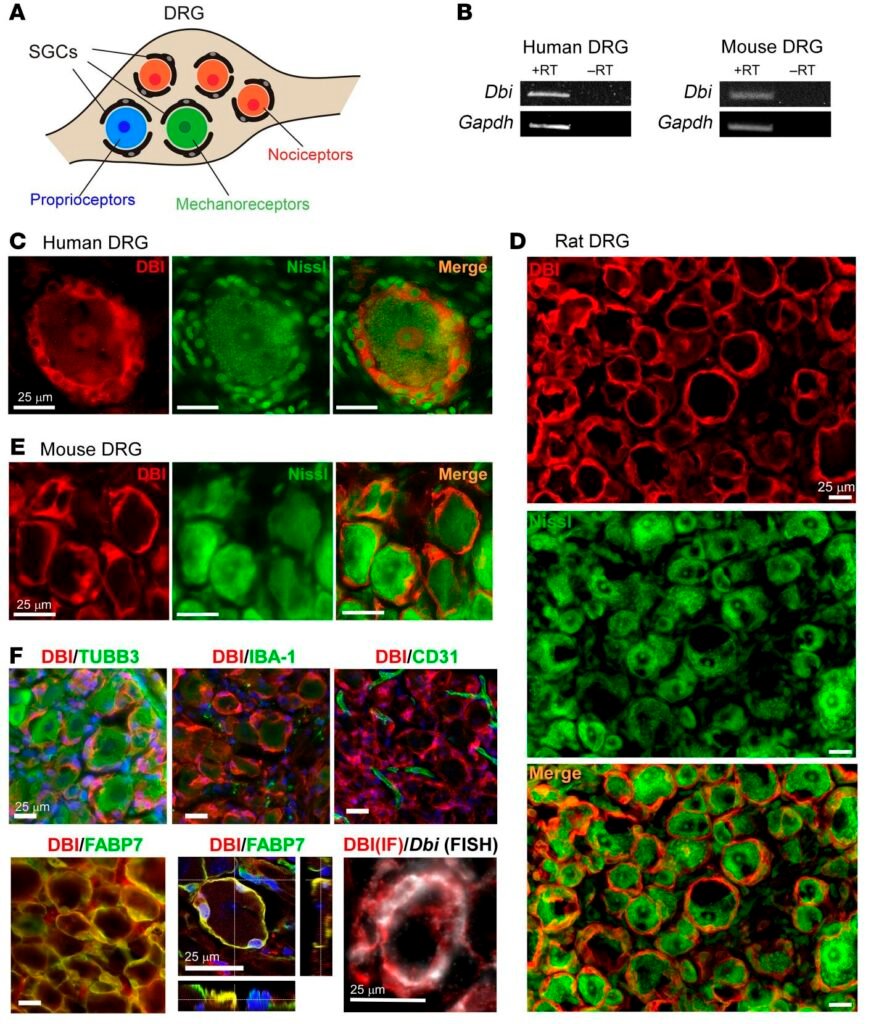A groundbreaking discovery in the field of pain management has been uncovered through a collaborative study led by Professor Nikita Gamper from the University of Leeds. This research has shed light on the body’s ability to produce its own natural “sleeping pills,” similar to benzodiazepines, that can effectively dull nerve signals and regulate the perception of pain without the need for harmful and addictive opioids.
The study, which was conducted in partnership with Professor Xiaona Du at Hebei Medical University in China, has the potential to revolutionize the way chronic pain is treated. By identifying specific cells attached to human nerves in the spinal ganglia that release peptides with a similar mechanism to benzodiazepines, the research team has uncovered a localized process within the peripheral nervous system that can modulate pain signals without inducing the sedative effects associated with opioids.
This groundbreaking finding suggests that nerves have the ability to “tune out” pain signals or limit the brain’s interpretation of pain levels. Dr. Ganesan Baranidharan, a pain medicine consultant in Leeds, emphasizes the importance of such discoveries in providing relief for patients suffering from chronic pain, many of whom struggle to find adequate pain management solutions due to the limitations of current treatments.
Published in the Journal of Clinical Investigation in June 2024, Professor Nikita’s research opens up new possibilities for the development of targeted medications that can block pain signals without affecting other brain functions. This innovative approach offers hope for the millions of individuals worldwide who experience daily pain and seek better treatment options.
Dr. Berta from the University of Cincinnati underscores the significance of advancing pain research to address the unmet needs of patients with chronic pain. By collaborating across borders and disciplines, researchers like Professor Gamper, Professor Du, and Dr. Berta exemplify the collaborative spirit of academic research, leading to significant advancements in understanding and treating pain.
The journey towards this discovery was motivated by a personal connection to the impact of neuropathic pain, highlighting the researchers’ commitment to alleviating suffering. Moving forward, the collaborative efforts of scientists from Leeds, Shijiazhuang, and Cincinnati hold promise for further breakthroughs in pain management and the development of innovative treatment strategies.
As the field of pain management continues to evolve, the findings of this study offer a glimpse into a future where chronic pain can be effectively managed with targeted and safe interventions. Through ongoing research and collaboration, the path to improved pain relief for individuals worldwide becomes increasingly attainable.


